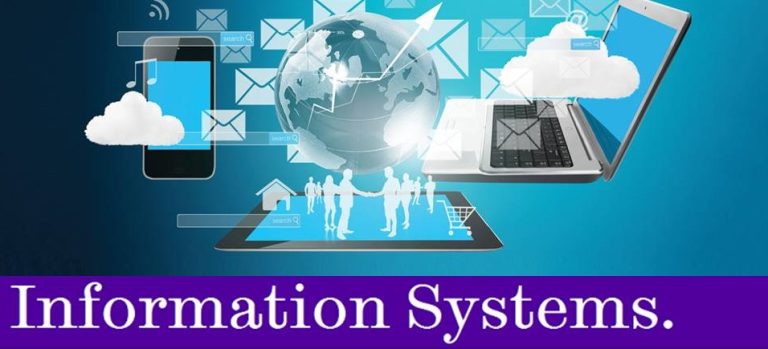IS stands for Information System. It refers to a formal, sociotechnical organizational system, which is created with the purpose of gathering, processing, storing, and disseminating information. Information systems are made up of four elements from a sociotechnical standpoint: the task, the people, the structure (or functions), and the technology. make simple words

Components of Information Systems
- Data: The raw information.
- Hardware: Physical equipment (computers, servers).
- Software: Programs that process data.
- People: Users and experts.
- Procedures: Rules for data handling.
- Networks: Connections for data flow.
- Feedback: Learning from collected data.
- Control: Managing and monitoring the system.
Types of Information Systems
- Transaction Processing System (TPS): TPS handles day-to-day transactions, like sales or reservations, and ensures data accuracy and reliability.
- Management Information System (MIS): MIS collects, processes, and presents data to help managers make informed decisions. It provides reports and summaries.
- Decision Support System (DSS): DSS assists in complex decision-making by analyzing data and providing insights and scenarios.
- Executive Support System (ESS): ESS is designed for top-level executives, offering strategic information and long-term trends to aid in high-level decision-making.
- Enterprise Resource Planning (ERP): ERP integrates various business processes (e.g., finance, HR, and inventory) into a single system for efficiency and coordination.
- Customer Relationship Management (CRM): CRM manages interactions with customers, focusing on sales, marketing, and service to enhance customer satisfaction.
- Supply Chain Management (SCM): SCM optimizes the flow of goods, information, and finances across the entire supply chain, from suppliers to customers.
- Knowledge Management System (KMS): KMS organizes and shares knowledge within an organization, improving collaboration and decision-making.
- Geographic Information System (GIS): GIS captures, analyzes, and displays geographical data, useful for mapping and spatial analysis.
- Expert Systems: These are AI-based systems that emulate human expertise in specific domains, offering solutions and recommendations.
Applications of Information Systems
- Business: Manages finances, inventory, and customer data with systems like ERP.
- Healthcare: Stores patient data with Electronic Health Records (EHR).
- Education: Facilitates online learning and student tracking through Learning Management Systems (LMS).
- E-commerce: Supports online shopping and seamless customer experiences.
- Finance: Manages transactions, stock trading, and risk analysis.
- Government: Enhances citizen services, tax collection, and urban planning with GIS.
- Manufacturing: Optimizes production, inventory, and quality control.
- Transportation: Improves supply chain efficiency with Transportation Management Systems (TMS).
- Entertainment: Enables digital media distribution, online gaming, and social connections.
- Agriculture: Increases agricultural productivity through precision farming and supply chain optimization.
Benefits and Impacts of Information Systems
- Improved Efficiency: IS streamlines processes, automates tasks, and reduces manual labour, leading to increased productivity and cost savings.
- Enhanced Decision-Making: Access to real-time data and advanced analytics tools empowers organizations to make informed and timely decisions.
- Increased Accessibility: IS enable remote work, e-learning, and telemedicine, making services and information more accessible to a global audience.
- Data Accuracy: IS minimizes human errors in data entry and processing, improving the accuracy and reliability of information.
- Global Connectivity: IS facilitate communication and collaboration across borders, fostering international business and cultural exchange.
Conclusion
In the end, Information Systems (IS) are fundamental to our contemporary international, gambling a pivotal role in groups, industries, and regular existence. These structured systems efficiently gather, method, store, and distribute facts and statistics, enabling better choice-making, superior productiveness, and advanced communique. IS encompass a wide range of additives, from hardware and software program to the folks who use them, and they have numerous programs throughout sectors along with enterprise, healthcare, schooling, and greater.
FAQ's About IS
The main components are data, hardware, software, people, procedures, networks, feedback, and control.
The primary purpose is to manage data efficiently, support decision-making, improve processes, and facilitate communication and collaboration.
Common types include Transaction Processing Systems (TPS), Management Information Systems (MIS), Decision Support Systems (DSS), and Enterprise Resource Planning (ERP) systems.
IS enhance efficiency, aid in decision-making, improve customer service, and enable better resource management, leading to increased competitiveness and profitability.
Related posts:
- AMC Full Form: Benefits, Components, Needs, Advantage
- ORS Full Form: Dehydration, Myths, Flavors, Varieties & Facts
- PCC Full Form: Importance, Types, Application Process
- PAN Full Form: Legal Provisions, Regulations,
- BRB Full Form: Productive, Routine, Distractions
- MCD Full From: Introduction, Responsibility, Challenges
- CT Scan Full Form: Scans, price, Advantages
- USA Full Form: History, Economics,Technology, culture




















